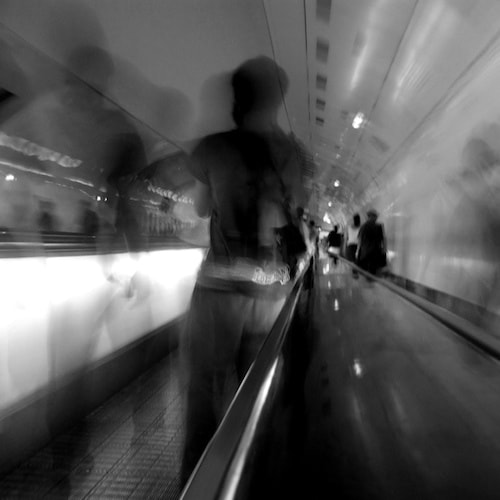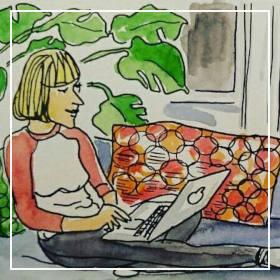In October 2018, I went to a ‘Black travel symposium’ in Brussels. Its aim was to bring together travel writers, bloggers and photographers to share and discuss their experiences of being a travel writer of colour in a predominantly white travel writing industry. For me, it was an opportunity to meet with Nina again, a woman from Uganda who had come to Germany about 10 years ago to study and is now writing her PhD on Black British writers. She is one of my interlocutors for my research on the role of travel in the development of Afrodiasporic identities. Being a blogger herself, she was interested in attending the symposium, which took place as part of the EU-project ‘Disothering – Beyond Afropolitan and other labels.’
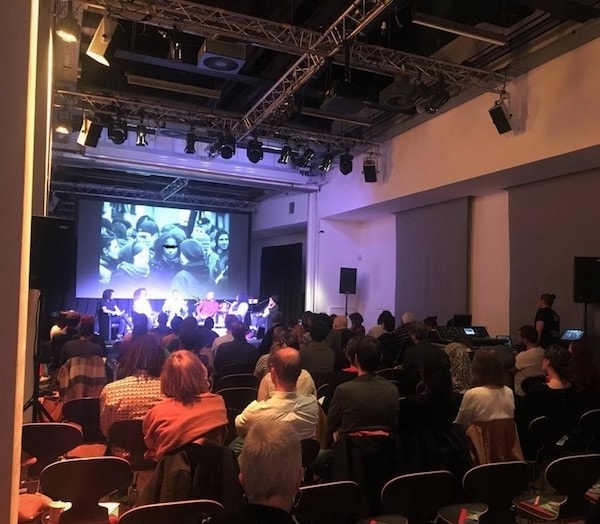
One panel addressed the similarities and differences when it came to Black people travelling, especially in relation to gender, nationality and economic capital. The question of privilege was central to the discussion. On the panel, there was a British middle-aged novelist, Geraldine; Mona, a photographer, who was originally from Nigeria, and who had migrated to the US and then to Sweden; a moderator from Brussels, Michael; and Salman, a writer living in Belgium, who came to the UK originally from Eritrea as a political refugee.
It was interesting to bring these different people and their perspectives together for one panel, under the umbrella of discussing experiences of travel on a personal level. That is, personal motivations that are read about in voluntary migration and leisure travel are almost never discussed in studies on refugees. While both ‘migration’ and ‘tourism’ are forms of travel, they are defined by discrete geographies, moral connotations, participating populations, legal and political frameworks. This panel opened up a space to discuss positive as well as negative aspects and experiences within all kinds of movements: voluntary migration, leisure travel, as well as forced migration.
Everyone talked about their experiences of travel with a particular focus on tourism and leisure travel, because they felt that this was the category where Black people or people of colour have traditionally been excluded: tons of travel literature have been written from the standpoint of the white (male) European gaze contributing to the construction of ‘the tourist’, as being a white, European, economically privileged person, while ‘the migrant’ or ‘the refugee’ are Black people and people of colour. This simplistic binary is something that the panellists and also Nina who sat next to me knew all too well. In the last years, Nina told me, she had been ‘mistaken’ for a refugee several times: ‘It got worse since the so-called migration crisis’ she said. The moderator, who was born in the UK, first spoke to Geraldine about tourism and her privilege of travelling with a European passport. After addressing her, Michael jumped to Salman and the moderator stepped directly into the ‘category trap’. By this, I mean wanting to talk about Salman’s experience as a political refugee, he opposed the privileged tourism experiences of Geraldine to the supposed opposite of Salman’s travel as a refugee, linking his travel experience to disadvantage, force and compulsion:
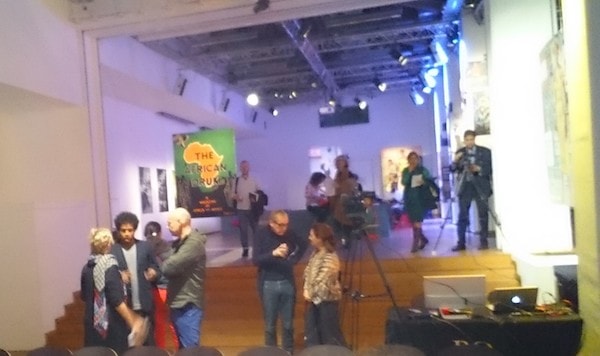
Michael: Salman you don’t have – Geraldine was talking about privilege – the reason that you are in Brussels today is not really a choice, it’s not that you were born and raised in the UK with a white environment; can you tell me what your take is on travel, on the meaning of travel and the link to literature, too?
Salman: Ok. First, I contest the word ‘privilege’, because I don’t see my life as in any way unprivileged; all of us here, we got here through different routes. I believe that everyone can be privileged compared to others. I grew up in a refugee camp for example and some of them have stayed there, some of them have died there, so I see myself as more privileged than them. I don’t see my life in any form as kind of tragic. So yes, it has been done through migration, I was born in Eritrea to an Eritrean father and an Ethiopian mother and then I grew up in a camp because of the war between the two countries. Then I went to Saudi Arabia and then to the UK as an under-aged immigrant. I didn’t speak a word of English then. I came to the UK with my brother and being there I began to feel this freedom. And so yes, maybe it was difficult but I kind of felt this freedom to discover another culture. To learn a new language, and because I did not speak English, and I didn’t have family around me, the way I felt adopted, or I felt assimilated or I felt part of the British society was through walking. And I walked a lot. South, East, West – walking was a way of being only with myself; in a way you know that you are isolated, but you find a language in that loneliness and you find a language in being different. So it is not victimhood, but I felt it was an opportunity to discover something new.
‘Existential mobility’, a concept coined by Ghassan Hage, explains the idea that spatial movement is attached to the idea of moving forward in one’s life when one feels stuck in it: ‘We move physically so we can feel that we are existentially on the move again or at least moving better’ (Hage 2005, p. 470). Salman’s experiences add a layer to Hage’s argument: Living in Saudi Arabia in a refugee camp and being relatively immobile physically, as the movements of people were rather controlled, the only way to ‘travel’ was through reading. Even in contexts of immobility the idea of travel stayed with Salman, and if it could not be achieved through the body, than he achieved it through the mind:
Salman: Now I was thinking about this idea of travel that we all associate with passport or going from one place to another, but I think for a lot of people travelling is mostly done through reading, wishing or even talking and listening. And I know for a fact for example when we were kids in Saudi Arabia most of those novels that we wanted to read were banned and so we were actually taking risks in getting those books because we thought we were travelling to those different places. I read Kafka in Saudi Arabia and that was a huge risk. We felt like it was an alternative form of travelling metaphorically by engaging emotionally with these characters and I think that is why reading novels is incredibly important because it gives you access to different cultures.
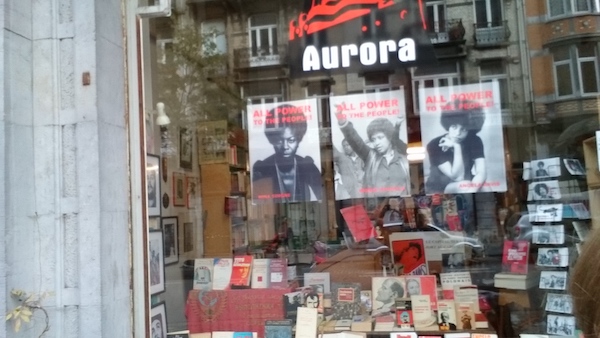
In order to grasp the full spectrum of experiences when it comes to diverse im/mobilities, we need a space that also includes the description of positive experiences of people who moved because they were forced to.
Moral judgement shades the way we as anthropologists study mobilities and use categories such as ‘migration’ or ‘tourism’. In order to avoid conflating categories like ‘migrant’, ‘tourist’ or ‘refugee’ with a person or a group, it would be interesting to look at them as intersubjective processes.
Categories frame how a person is viewed from the outside and affects how a person constructs and understands Self and Other in relation to these categorizations. It would be important to explore mobilities further from an existential perspective that focuses on how a person negotiates and navigates the structures surrounding her. Seen from an existential perspective that puts the experiences of the human being at the center of research, ‘tourism’ or ‘migration’, as forms of human movement in the world, have potential overlaps that are interesting to explore for either category. Thinking from the perspective of ‘destination communities’ essentialisations of culture and imaginations of alterity are means of reassuring themselves of who they are (stability). While at the same time essentialisations of culture are used in politics or media for populist reasons and as a means of mobilising politically against the ‘threat’ of immigration or the ‘waves’ of ill-behaved tourists. Another topic would be to explore the element of quest for (transformative) experience and adventure underlying many forms of travel. Further, the analysis of different ‘contact zones’ [1](Pratt 1992, Bruner 2005), that is, practices and cultures of hospitality to study the mutually co-constitutive relationships between different travelers and ‘the host society’ through transfers and transculturation processes.
I am not saying that ‘tourism’ or ‘migration’ are the same phenomenon. It remains important to make a distinction between forced and voluntary travel because there are, of course, questions of power and discrimination in different forms of movements to address. As Glick-Schiller and Salazar remind us, there are indeed different ‘regimes of mobility that normalize the movements of some travelers while criminalizing and entrapping the ventures of others’ (2013, p. 189). The potential of mobility of a person depends on nationality, gender, ethnicity, religion, age, sexuality and other socially and culturally constructed categories.
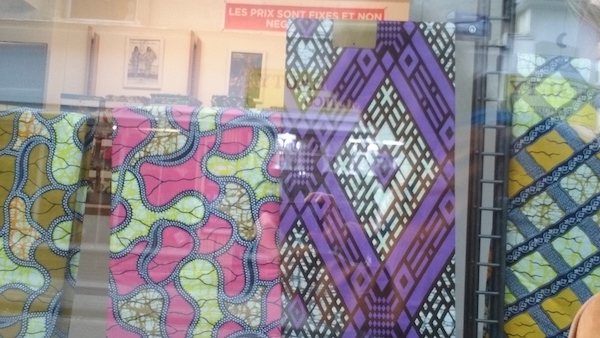
However, categories such as ‘tourist’, ‘migrant’ or ‘refugee’ only frame how a person is able to travel and do not explain the wider emotional, experiential and motivational base of a person on the move. A more person-centred perspective on how it feels like to be in another country or place allows taking a closer look into how a person copes with what Michael Jackson terms being a ‘what’ and a ‘who’ at the same time: a person who actively creates a lifeworld through their agency and is being acted upon by others (Jackson 2013). Taking an existential anthropology perspective (Jackson 2012) while working on ‘migration’ or ‘tourism’ can contribute to the critical reflection of categories of mobility.
A great example of this approach is Annika Lems’s Being-here: Placemaking in a World of Movement (2018) which follows the life and movements of three middle-aged Somalis who came to Melbourne as political refugees and documents their steps and negotiations towards making Melbourne their home. This contributes to our understanding on how constructed categories and boundaries work on a person and how s/he negotiates and transgresses imposed boundaries of categories. It shows how social reality emerges from the subjectively experienced life-worlds of humans, who use their senses and intellectual apparatus to structure their experiences.
Listening to and following biographies like Salman’s can help us understand how a person navigates through diverse categories of movement and identity ascriptions, and what strategies are deployed by a person to deal with these in order to live a decent life.
Salman chose to begin his talk in the panel with contesting that word ‘privilege’. He did not see himself as not privileged simply because ‘privilege’ is also a matter of perspective. Instead, he chose to free himself from the negative characteristics that are attached to a person labelled a ‘refugee’; he swapped tragedy, trauma, and constraint for freedom, privilege, and imagination.
Literature
Bruner, E. M. (2005). Culture on tour: Ethnographies of travel: University of Chicago Press.
Glick Schiller, N., & Salazar, N. B. (2013). Regimes of mobility across the globe. Journal of Ethnic and Migration Studies, 39(2), 183-200.
Hage, G. (2005). A not so multi-sited ethnography of a not so imagined community. Anthropological Theory, 5(4), 463-475.
Jackson, M. (2012). Lifeworlds: Essays in existential anthropology: University of Chicago Press.
Jackson, M. (2013). The politics of storytelling: Variations on a theme by Hannah Arendt (Vol. 4): Museum Tusculanum Press.
Lems, A. (2018). Being-here: Placemaking in a World of Movement (Vol. 35): Berghahn Books.
Pratt, M. L. (1991). Arts of the contact zone. Profession, 33-40.
[1] Edward Bruner uses the concept of the ‘touristic borderzone’ (2005, p.17) to describe a space, ‘a behavioral field’ (ibid.), where travelers and locals meet and that emerges through tourism. Mary Louise Pratt defines a contact zone as a ‘space of colonial encounters’ (1992, p.6). For Pratt these contact zones are marked by ‘coercion, racial inequality, and intractable conflict’ whereas Bruner characterizes these border zones as stages for performances of both ‘locals’ and ‘travelers’. Both authors have in common that they deconstruct the notion of ‘locality’, ‘emic’ and ‘etic’.
Featured image by Mr. Theklan (Flickr, CC BY-SA 2.0).

